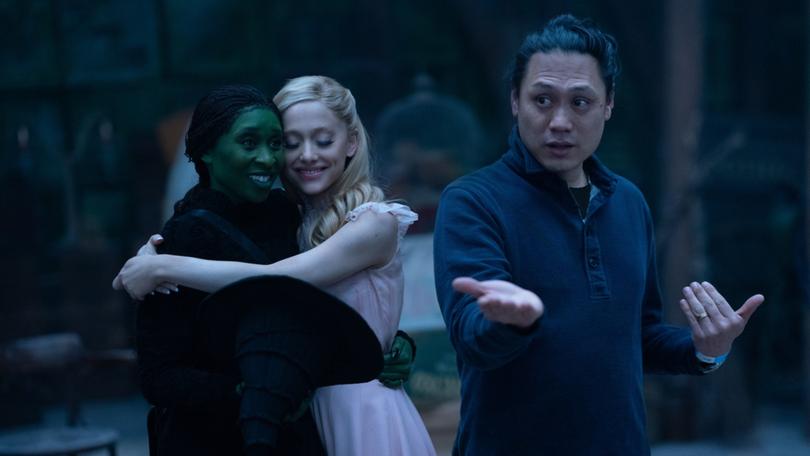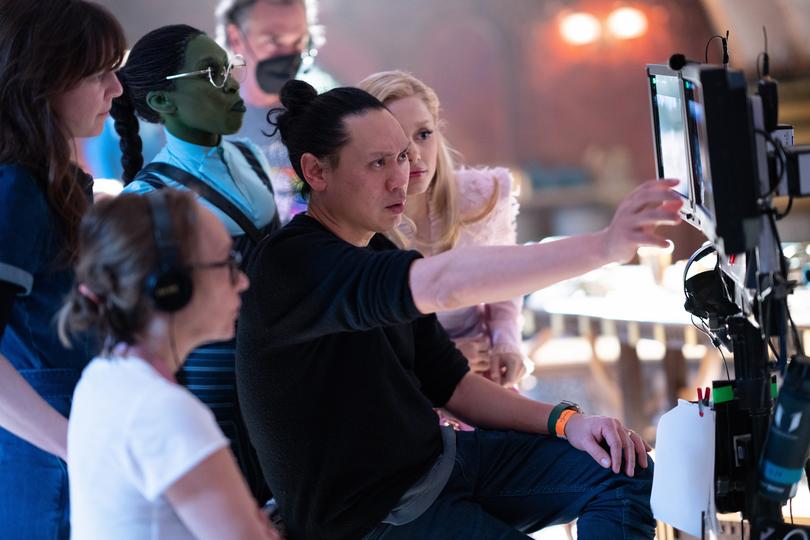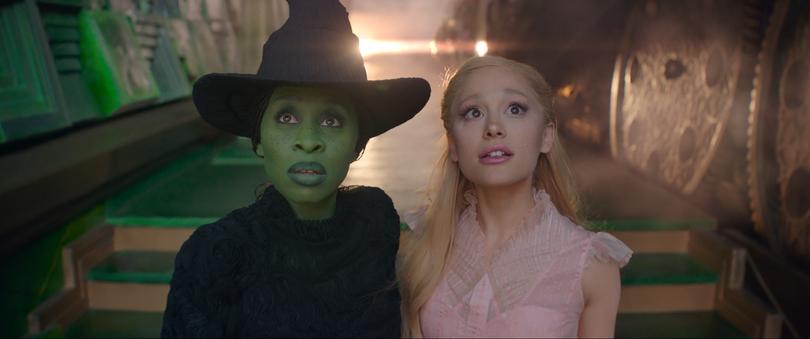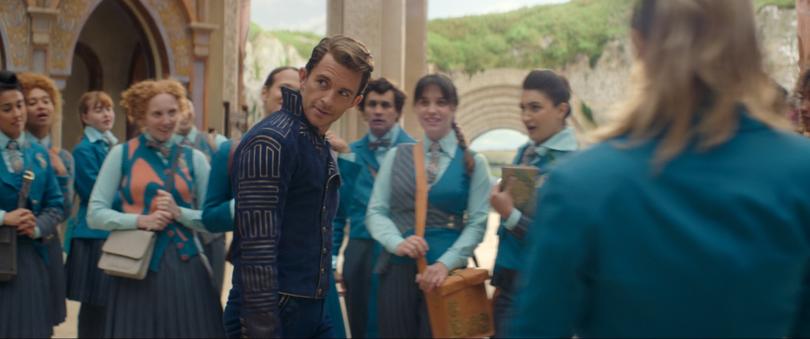Wicked director Jon M. Chu knew the musical was always destined to be a movie
Jon M. Chu needed all the stars to line up to make a movie that’s been at the top of the list for 20 years.

For 20 years, Jon M. Chu kept calling super producer Marc Platt and never got a call back.
Of course, in those early years, who was Chu to Platt? It was only after the California-born and raised Chu had paid his dues in the movie business, helming the likes of Crazy Rich Asians and In the Heights, it finally happened.
He got the call about Wicked.
Sign up to The Nightly's newsletters.
Get the first look at the digital newspaper, curated daily stories and breaking headlines delivered to your inbox.
By continuing you agree to our Terms and Privacy Policy.“I had a list of movies that I always wanted to do when I first got into the business, and Wicked was number one on that,” Chu told The Nightly. “I put it away, I started on my career and I’m really, very grateful I got to grow up making studio movies, learning when to try things, break some things.
It really feels like destiny to reach this moment.
When the call finally came, it was during the Covid pandemic. To his surprise, Chu found himself asking if a screen adaptation was the right project for him at the time?

It was a line in the lyrics of “Defying Gravity”, Wicked’s showstopper number that closes the first half of the stage production, and ends Part One of the films, that convinced him.
“Elphaba says, ‘Something has changed within me, something is not the same’,” Chu explained.
“It’s just a little line but because we had just come out of the pandemic, it felt like this is the mood of the country, this is the mood of the world.
“We don’t know what’s next, and it’s scary as hell, and what better character than the Wicked Witch of the West to reassess the character of that, and who told you that story.
“There is no wizard waiting for you anymore to give you your heart’s desire, and maybe (the Yellow Brick Road) was never made for any of us, maybe it was for other people.”
Wicked the stage play opened in San Francisco in 2003 and was based on Gregory Maguire’s 1995 novel, a revisionist story that put the Wicked Witch of the West at the centre of the story, rewriting it so that she had a name, a backstory and relatable motivations.
It also explored the dynamics of power and propaganda and how someone different is used as a focus to distract and manipulate the masses.

For Chu, Wicked is asking that once you know the truth, do you stay in your bubble of privilege.
“Or do you actually have to confront the uncomfortable things, the angry things, the sad things and maybe the embarrassing things?
“Do you forgive each other, give each other some grace because the only way out is through.”
These questions is what drove him and, he said, his stars Cynthia Erivo and Ariana Grande, who play Elphaba and Galinda, respectively.
“That’s when we knew that this move had to be made and it has to be made now, this was always built for this moment when we’re all in transition,” he said.
It wasn’t just the pandemic that changed Chu, it was also his experiences making Crazy Rich Asians, which he said rewired his brain in thinking about the power of movies.
After the feverish reaction to Crazy Rich Asians, to its mere existence as a big studio movie with an ensemble cast of actors of Asian heritage, telling an Asian diaspora story, Chu felt the responsibility of cinema as a medium that can amplify stories and empower the disenfranchised.
“What you can do with that changes you as a person, and from then on, you can’t do anything else,” he recalled.
Why spend these years making something that doesn’t mean anything?

It was also the births of his children — his fifth came into the world on the night of Wicked’s Los Angeles premiere.
“I couldn’t have made this movie five years ago. I wasn’t ready, mentally. Having kids changes that too because now the focus isn’t ‘I need to prove myself’ or ‘Do I belong here or what?’.
“I belong here but what stories do I want to tell to paint for my kids as they grow up and experience the stories of the world and how it works?”
The Wicked stage production is hugely popular, a blockbuster production that has sold more than 60 million tickets. Chu was among the first wave of people who saw it when he was still in film school. He loved it and “felt it in all its glory”.
But he also knew exactly how you can turn it into a movie, which levers to pull that aren’t available in a theatre. Even as a young, aspiring filmmaker, he felt that Wicked was always destined to be a film.
It wouldn’t work as a film without the crucial casting of Erivo and Grande. Before Erivo made her movie debut in 2018 in Bad Times at El Royale and Widows, Chu saw her in the Broadway production of The Color Purple.
“I’d never seen a first act break where everyone is on their feet, clapping. It was incredible what she can do,” he said. “It’s not just in her voice, it’s her purpose, and that is available for us to sit in, and share a common thing. That is her magical power.”
Before Erivo came in for Wicked, Chu was open to myriad possibilities of who could play Elphaba. Maybe they would discover someone new. But Erivo walked in, in a t-shirt and jeans, and sang “The Wizard and I”.
“I felt like it was me in the dorm room, dreaming about becoming a filmmaker, and I knew that if I connected to it, then whole world would connect to it.
“The subtlety of it, the quiet moments of the stillness, was where the movie really was. Yes, the spectacle, the big voice, the flying around, of course. But it’s the dynamic of being so quiet with her eyes and then also belting with such force and power.
“If we could make a movie in that, it would feel like no musical that I’d ever seen before.”
Wicked: Part One is in cinemas on November 21

